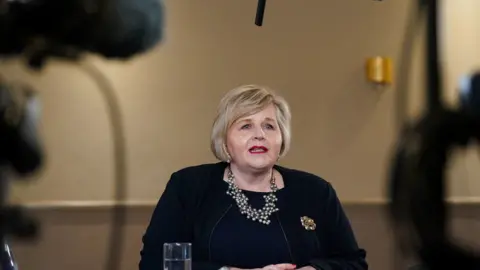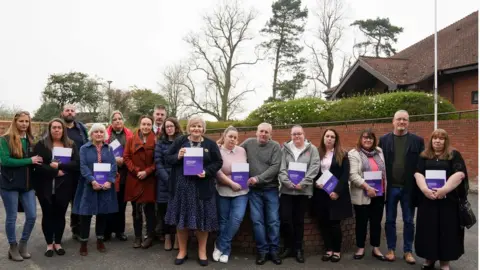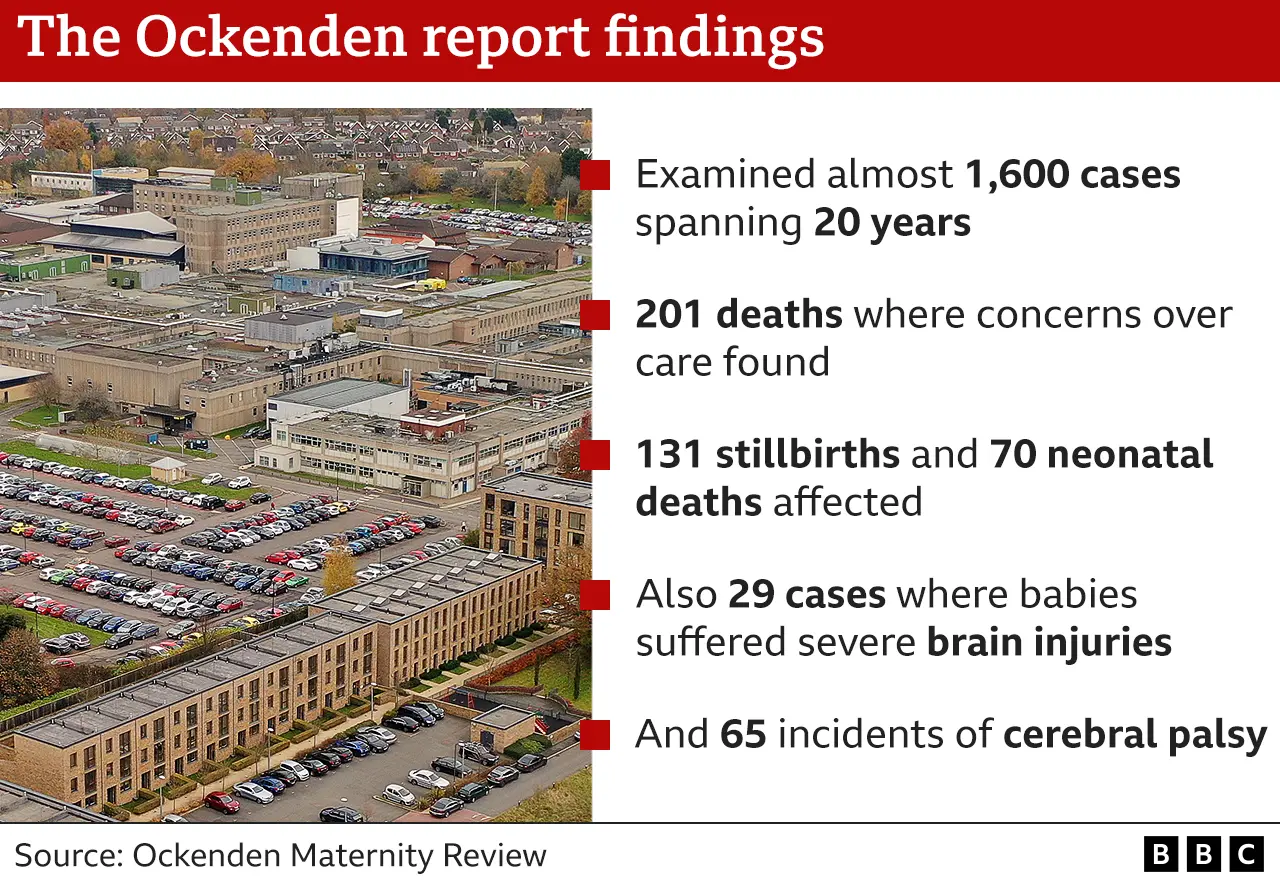Shrewsbury maternity scandal: Staff express 'inability to speak out'
 PA Media
PA MediaA senior midwife who led an inquiry into the UK's biggest maternity scandal says she is still being contacted by staff expressing "their inability to speak out".
Donna Ockendon found failures may have led to the deaths of more than 200 babies at Shrewsbury and Telford Hospital NHS Trust (SaTH).
The inquiry also heard there was a culture of bullying, anxiety and fear.
SaTH said an online platform allowed staff to raise issues anonymously.
It said a number of other initiatives were also in place to encourage people to speak out, but acknowledged "significant improvements are still required".
Speaking to BBC Radio Shropshire on Thursday, Ms Ockenden said she had continued to hear from staff with concerns "even this morning".
One of the "challenges" of the inquiry, she told BBC Radio Shropshire, was speaking to former and current staff.
"Despite all our efforts," she said, "in the end we spoke to only 109 members of staff."
That was despite a Staff Voices initiative being set up to assist the investigation, as well as questionnaires.
'You must protect me'
For those staff who did contribute, during a process to seek consent to use anonymised excerpts in the final report 11 people withdrew from the process, Ms Ockenden said.
 PA Media
PA Media"Even then, staff were saying to us 'I must be anonymised, I mustn't be identified, you must protect me'.
"Staff continued to contact us with their concerns and expressing their inability, from their perspective, to speak out as of last Tuesday, and I've continued to hear from staff even this morning."
The inquiry was established in 2017 by then Health Secretary Jeremy Hunt, but grew over the years to encompass an ever larger number of cases relating to deaths and serious injuries suffered by babies and mothers.
Over the last five years, evidence has emerged of a "toxic" atmosphere at the trust, while in 2018 regulator the Care Quality Commission identified a "culture of bullying and harassment" as well as "defensiveness".
The senior leadership team has changed considerably over the years, but in her final report last week Ms Ockenden said staff were often frightened to speak out about failings, citing "a culture of undermining and bullying".
She said the whole team involved in the inquiry felt "incredibly strongly" that the voices of staff were heard as part of the inquiry.
"Alongside family voices it's absolutely vital that we do say to those staff 'what you told us was really important and we'll do our best to make sure that your voices are heard.'"
She said she would guide staff who were continuing to express concerns to use existing systems and structures within the trust.

"But I will escalate within the trust as well," she added.
"If someone comes to me with concerns I can't ignore that and say 'oh well that's not for me now I've published my report'.
"We've got to get to a culture within maternity services, not just in Shropshire, but across England, where staff feel safe to raise concerns."
Louise Barnett, Chief Executive at SaTH said: "We always encourage and enable colleagues to speak up and remind all our employees that they can raise any concerns through a number of channels confidentially - whether it's about patient safety or their own personal welfare - and know that if they do, they will be supported, listened to and the appropriate actions will be taken.
"Through initiatives such as Freedom to Speak Up, an online platform for staff to anonymously raise issues, executive drop-in sessions, and wider cultural change work, we have made progress, but we know that significant improvements are still required, and we are already taking further steps to strengthen the options and routes for staff to speak up freely and openly."

Follow BBC West Midlands on Facebook, Twitter and Instagram. Send your story ideas to: [email protected]
